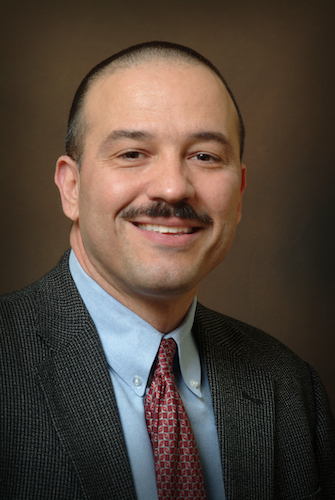The Skill of Well-Being
Richard Davidson is a professor of psychology and psychiatry at the University of Wisconsin–Madison. He is also the founder and chair of the Center for Healthy Minds. He and many other scientists have done a lot of research to uncover the neurological underpinnings of well-being; they make the assertion that well-being is a skill. Like all skills, if one practices well-being, one gets better at it. There are four scientifically-validated neurological circuits that provide the substrate for enduring change and well-being. These neurological circuits have elasticity, meaning that with practice, they strengthen.
Resilience and Mindfulness
One of these constituent skills for well-being is resilience, the ability to recover from setbacks. People who tend toward depression and anxiety have low connectivity in those parts of the brain responsible for resilience. Having the ability to observe how our minds tumble from one woe to the next in a net of reactivity after we experience a setback and to being able to pull our minds away in a different direction is the key to resilience. Rumination, the tendency to continuously think negative thoughts, saps joy and increases depression and anxiety. Mindfulness practice is one way to start to modulate those circuits.
There are many different types of mindfulness practices available if you are interested to learn more. One such practice involves visualizing someone who might be suffering, imagining taking on their suffering, and transforming that suffering to extend compassion toward that person. Cognitive reappraisal therapy, learning to reframe adverse events so as to see them as not so enduring or drastic, also helps. Research demonstrates that the circuits involved with resilience require a large amount of practice to start to show modulation in the circuitry – a good and worthwhile goal.
Outlook and Optimism
Another constituent, outlook, is the ability to see the positive in things around us and in others. The neurological circuitry involved in outlook is easily affected by training. In fact just about 30 minutes of compassion training for about 7 days showed an impact. The effects on those circuits predicted future pro social behavior. An easy training for improving outlook is to write down, three times a day for a week, something positive about ourselves and something positive about someone we regularly interact with. We can also arrange to say thank you or provide a compliment and record those events in the same fashion to give our brain time to linger in those positive memories. Most people will start to notice an uptick in their outlook by the end of the week.
How Does Attention Affect Your Well-Being?
Attention is another and perhaps less obvious constituent. A study on attention and well-being demonstrated that when participants allowed their minds to wander, they tended to be less happy. It found that forty seven percent of the time, most of us don’t have our minds on what we are doing. The ability to be fully engaged in a task, including listening deeply to a loved one, adds richness to our lives. There are various forms of mindfulness practices that develop attentional skills.
Generosity Fosters Contentment
Finally, generosity, as the fourth constituent, is a well-researched behavior that fosters well-being. That doesn’t come as any surprise. People who have a strong sense of altruism and concern for the well-being of others are happier. The research indicates that when people engage in acts of altruism and generosity vast circuitries in the brain are activated, and those activations were more enduring than was achieved by other kinds of positive incentives.
The key messages from the research are that well-being is a practiced skill, that we are responsible for our minds, and that we can use our minds to shape our brains and affect our happiness.
Written by: Sergio Gutierrez, LCSW, BCBA
Clinical Therapist, Pine Grove Behavioral Health & Addiction Services, 1-888-574-HOPE (4673)

About Sergio Gutierrez, LCSW, BCBA
Clinical Therapist, Pine Grove Behavioral Health & Addiction Services
Sergio Gutierrez earned his Master’s degree in Social Work from Southern University in New Orleans, Louisiana. He is a Licensed Clinical Social Worker and has over 24 years of professional experience in a variety of clinical settings. He is a clinical therapist with Pine Grove Behavioral Health & Addiction Services’ Outpatient Department. Gutierrez is a member of the National Association of Social Workers and he is a Board Certified Behavior Analyst with specialty training in autism. Gutierrez is also a field supervisor and has served as an Adjunct Professor for The University of Southern Mississippi’s School of Social Work.
About Pine Grove Behavioral Health & Addiction Services:
Located in Hattiesburg, Mississippi, Pine Grove Behavioral Health & Addiction Services is one of the nation’s most comprehensive treatment campuses. Pine Grove’s world renowned programs treat gender specific chemical addiction including specialized tracks for co-occurring eating disorders and trauma. Additionally, Pine Grove offers an Intensive Outpatient substance abuse healing program for adults and a separate treatment program specifically for those who are age 55 plus. Other Pine Grove specialty programs include a dedicated professional’s treatment curriculum and a comprehensive evaluation center. Pine Grove also features a program for patients with sexual addiction. Inpatient Services including an Adult Psychiatric Unit, along with a Child and Adolescent Psychiatric Unit, and Outpatient Services are other components. Pine Grove is a division of Forrest Health, a partnership of healthcare organizations across South Mississippi, and the behavioral healthcare extension of Forrest General Hospital, a 547 bed, level II Regional Trauma Center. Established in 1984, Pine Grove has provided nationally and internationally recognized health care for 37 years.

